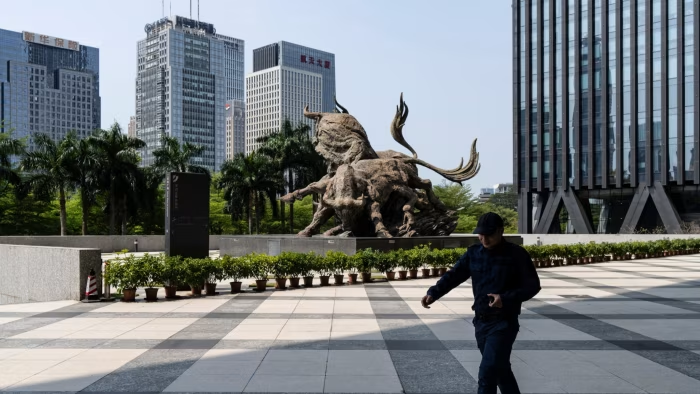Chinese stocks are experiencing a remarkable surge, outperforming global counterparts at the widest margin seen in eight years. This recovery signifies the effectiveness of recent government initiatives aimed at rejuvenating the market, despite ongoing hesitations among foreign investors regarding re-entry into the Chinese market. The MSCI China index has jumped 35 percent this year, contrasting sharply with the 14 percent growth of the MSCI World index, marking the largest gap in performance since 2017.
This surge follows a challenging period for China’s stock markets, which had been largely in decline since early 2021. Many global fund managers declared China “uninvestable” last year, attributing this sentiment to a governmental crackdown on the private sector and an ongoing real estate crisis. In response, Chinese authorities have implemented various reforms aimed at enhancing corporate governance among both state-owned and private enterprises, alongside substantial monetary and fiscal stimulus measures. These steps include initiatives aimed at facilitating share buybacks and encouraging equity purchases by the insurance sector, as well as organized buying efforts from state-backed entities, colloquially known as the “national team.”
Brendan Ahern, chief investment officer at KraneShares, noted that previous tendencies for local investors to view the stock market as a risky venture—comparable to a casino—are shifting. Increasing the stock market’s appeal as a source of investment returns may redirect capital away from real estate, aligning with government interests.
Mark Headley, chair of Matthews Asia, articulated the government’s recognition that merely investing in additional properties does not serve as a comprehensive strategy for savings. China’s stock market currently comprises a small proportion of its economy, with the country representing 16.8 percent of global GDP but only 10.3 percent of global stock market capitalization, according to World Bank data.
Despite its smaller market capitalization, the quality and quantity of Chinese stock options have evolved significantly. Data reveals that among the over 5,000 companies listed in mainland China, 2,504 possess market capitalizations exceeding $1 billion. Archie Hart, a portfolio manager at Ninety One, emphasized the diverse investment opportunities now available, recounting a historical perspective where state-owned enterprises dominated the market.
Efforts by regulators continue to drive improvements in stock market returns and corporate governance, with managers’ performances increasingly tied to share price and return on equity metrics. The appointment of Wu Qing, known as the “broker butcher,” to lead the country’s securities regulator reflects an urgency to stabilize the market and mitigate volatility, as he emphasizes the importance of foreign investors in China’s capital markets.
In light of these reforms, the China Securities Regulatory Commission has encouraged listed firms to utilize mergers and acquisitions, equity incentives, cash dividends, and share repurchases to enhance their investment value. Amar Gill, secretary-general of the Asia Corporate Governance Association, believes significant efforts are underway to bolster the credibility of mainland Chinese companies for international investors.
Nonetheless, there remains internal resistance to reforms that could reduce state control over businesses. Gill notes an ongoing tension between regulatory bodies advocating for shareholder value and governmental parties that want to maintain authority over both state-owned and private enterprises.
Despite the resurgence of Chinese stocks, many global investors remain wary amid US-China tensions and broader macroeconomic uncertainties. While Hong Kong and other Asian markets like South Korea and Japan are being viewed as relatively safer investment destinations, foreign investment flows to China’s mainland market have been tepid this year, with only $1.2 billion recorded in net foreign investment.
It appears that many foreign investors are skeptical about the adequacy of China’s reforms, interpreting new initiatives as indications of Beijing’s desire for increased control over companies and markets. Ryan Manuel, managing director of Bilby, underscored the prevailing tension between the need for capital market reforms and the government’s ongoing focus on controlling strategically significant sectors.
With options limited, Chinese investors are seeking alternative avenues for their investment, particularly in the wake of the declining real estate market.






